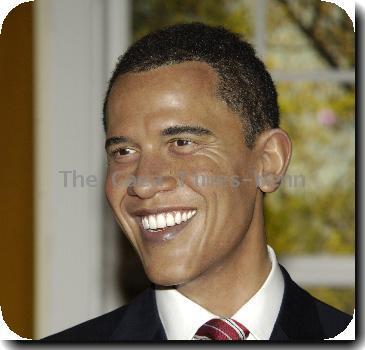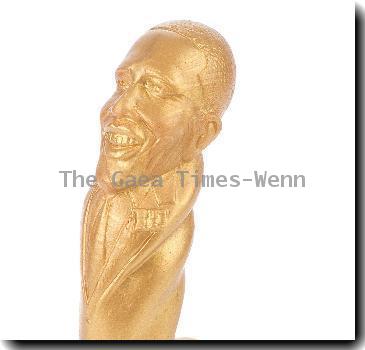Taiwan arms sale latest in slew of prickly issues raising US-China tensions
By Christopher Bodeen, APTuesday, January 26, 2010
Taiwan arms sale latest test for US-China ties
BEIJING — China warned the U.S. on Tuesday that an upcoming arms sales to Taiwan would further damage their relations — the latest in a flurry of disputes elevating tensions between Washington and Beijing.
President Barack Obama’s administration has been consulting with Congress ahead of a formal announcement of the sale, which is likely to include Black Hawk helicopters and Patriot missiles, senior U.S. congressional aides told The Associated Press.
China opposes all arms sales to the island, which it considers a renegade province, and will likely suspend U.S. military exchanges in response.
Speaking to reporters at a regularly scheduled news conference, Foreign Ministry spokesman Ma Zhaoxu mentioned no specific measures under consideration, but warned that any arms sales would “impair the larger interests of China-U.S cooperation.”
“Once again, we urge the U.S. side to recognize the sensitivity of weapon sales to Taiwan and its gravity,” Ma said.
China and the U.S. should respect each other’s stances on “core issues,” he said, using Beijing’s shorthand for matters of sovereignty and territorial integrity.
Taiwan is just one of a slew of sensitive issues over which Beijing and Washington have already clashed or are likely to in coming months, many prompting aggressive responses from China.
In recent days, China warned of damage to ties after U.S. Secretary of State Hillary Rodham Clinton’s relatively mild criticisms of China’s Internet censorship and calls to investigate cyberattacks against Google. The search giant has threatened to pull out of the world’s most populous online market if Beijing doesn’t relax Internet censorship.
On Tuesday, a government spokesman rebuked Washington for Clinton’s comments, saying they aimed to discredit China. An editorial in the People’s Daily the same day accused U.S. politicians of using the issue to “meddle in other nations’ affairs on the one hand and to consolidate American hegemony in cyberspace on the other hand.”
An expected meeting between Obama and the exiled Tibetan spiritual leader, considered a separatist by Beijing, will also likely raise tensions. In addition, the two are tussling over China’s massive trade surplus and accusations that it undervalues its currency to boost exports.
Washington is also growing impatient with China’s unwillingness to sign on to new nuclear sanctions against Iran and an apparent willingness to accept a nuclear-armed North Korea despite Washington’s demands that Pyongyang end its enrichment programs.
High-profile disagreements over human rights and measures to address climate change have further sharpened the tone of discussions.
“Selling arms to Taiwan is a mistake that will bring negative effects to the development of the China-U.S. relations and shows the American government’s lack of strategic insight,” Liu Jiangyong of Tsinghua University’s Institute of International Studies said Tuesday.
The sale highlights Beijing’s complicated relationship with Taiwan, which split from the mainland amid civil war in 1949 and has forged an increasingly independent identity.
Since the election of Taiwan’s China-friendly President Ma Ying-jeou in 2008, Beijing has played down its threat to use force to bring the island under its control, while pressing ahead with economic dialogue and easing off its campaign to humiliate and isolate the island internationally. Direct scheduled flights have opened, Chinese tourists can now visit Taiwan, and a new round of talks on a free trade agreement began Tuesday in Beijing.
China sees such improvements as bolstering its argument against arms sales to Taiwan, which the U.S. has agreed to eventually end on condition the island is not threatened.
Many Taiwanese, however, consider Washington’s willingness to sell defensive weapons as a sign of enduring U.S. commitment to a longtime ally and fellow democracy. Although the U.S. broke diplomatic relations with Taiwan in 1979, it remains legally bound to ensure the island is capable of defending itself.
The arms sales are also driven in part by Beijing’s booming military spending and the more than 1,000 ballistic missiles it has pointed at Taiwan. Chinese pressure has effectively prevented virtually all other countries from selling military equipment to Taiwan, making U.S. willingness to sell Taiwan weapons all the more crucial.
Tags: Asia, Barack Obama, Beijing, China, East Asia, Greater China, International Trade, North America, Taiwan, Territorial Disputes, United States, Weapons Administration



